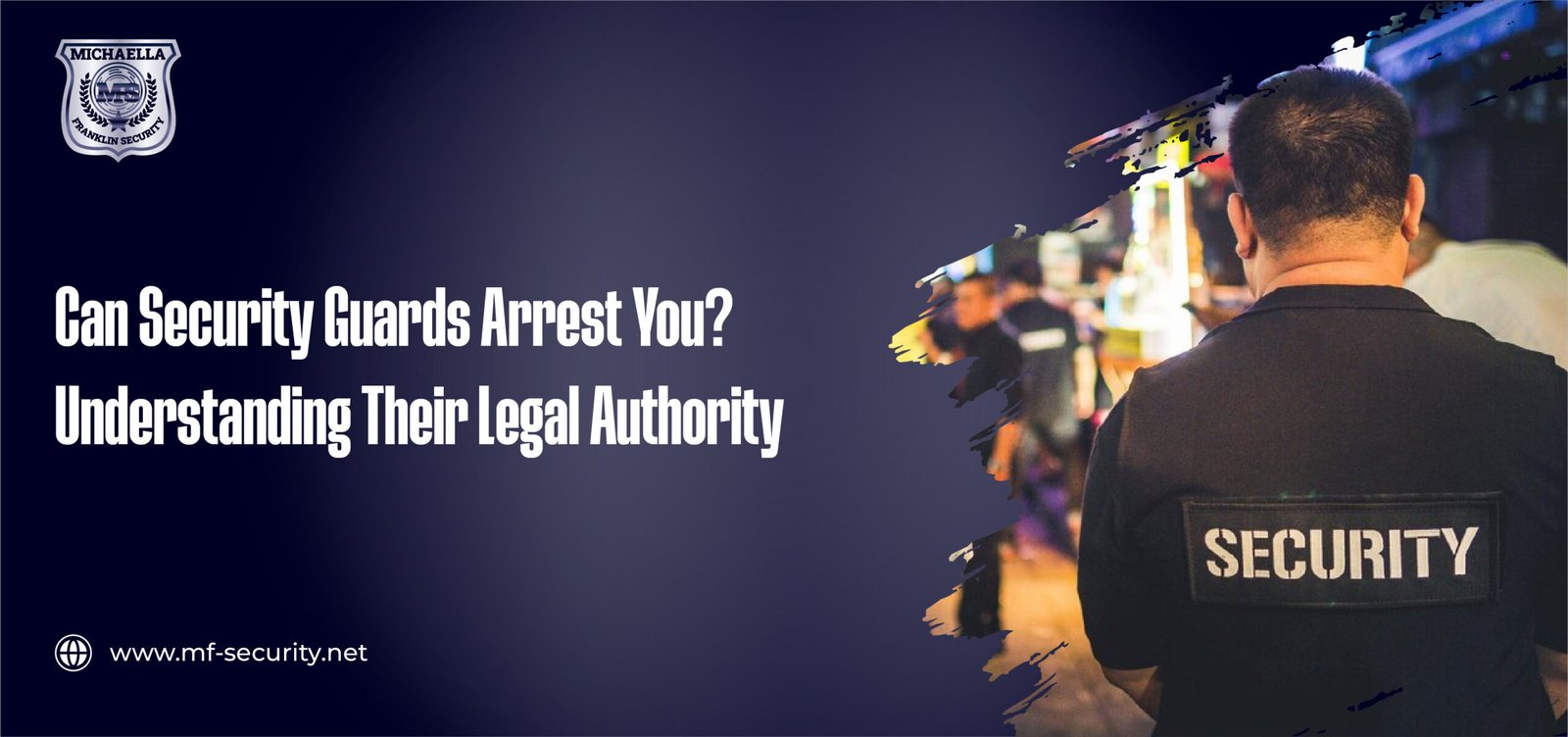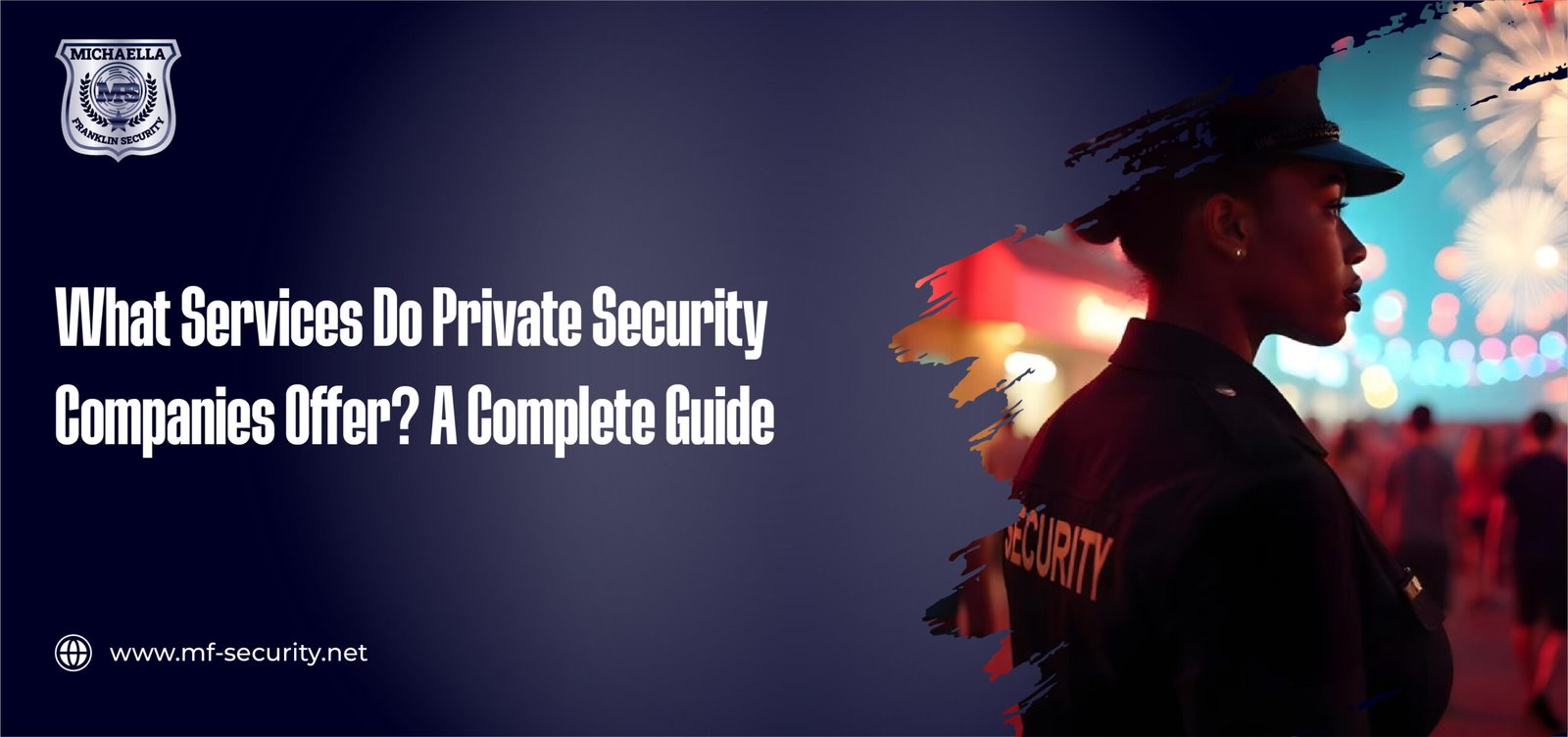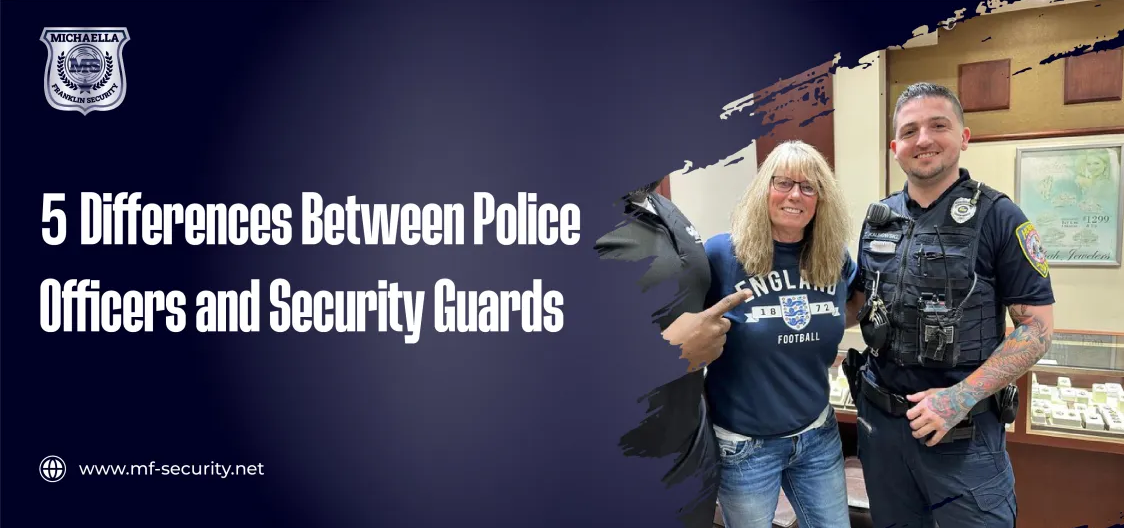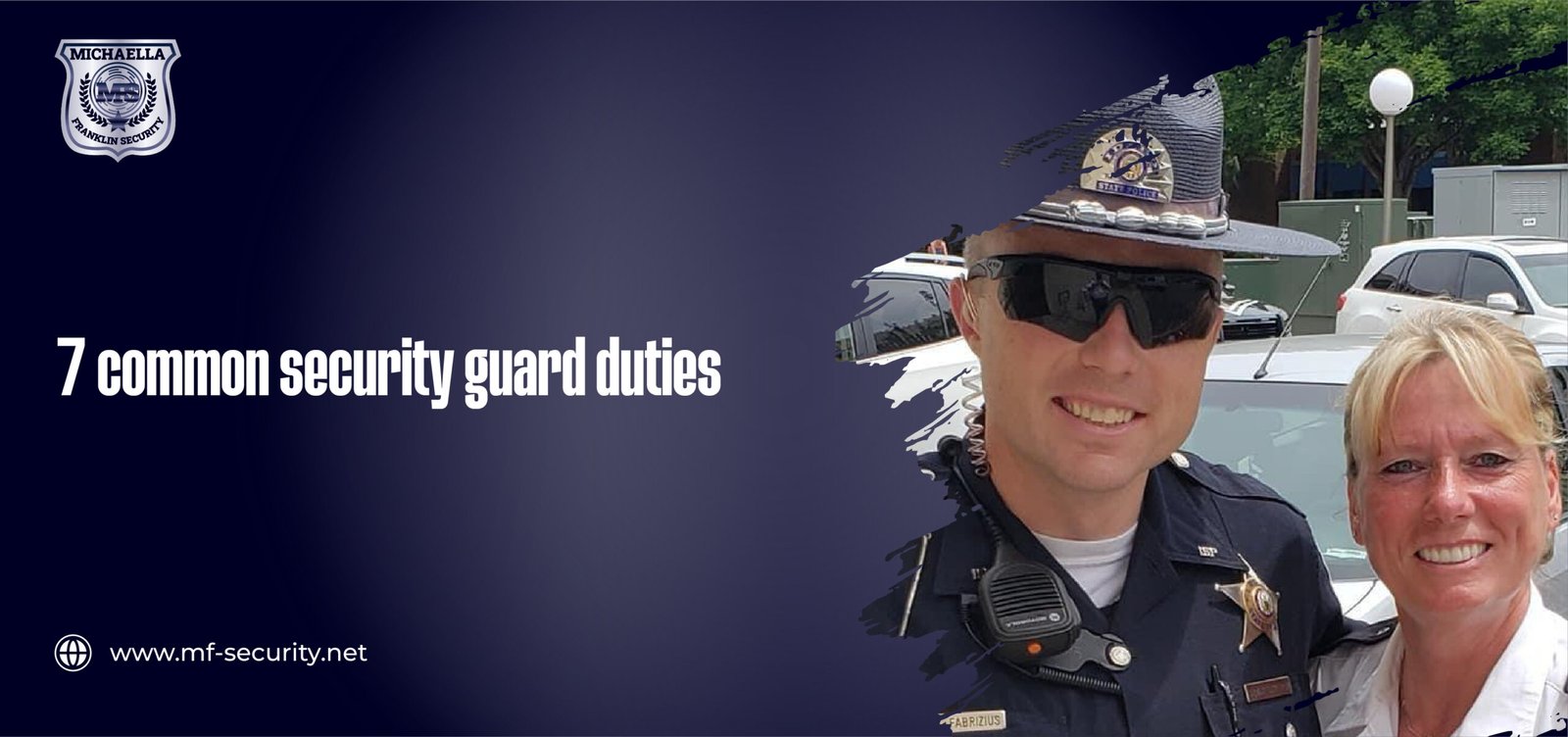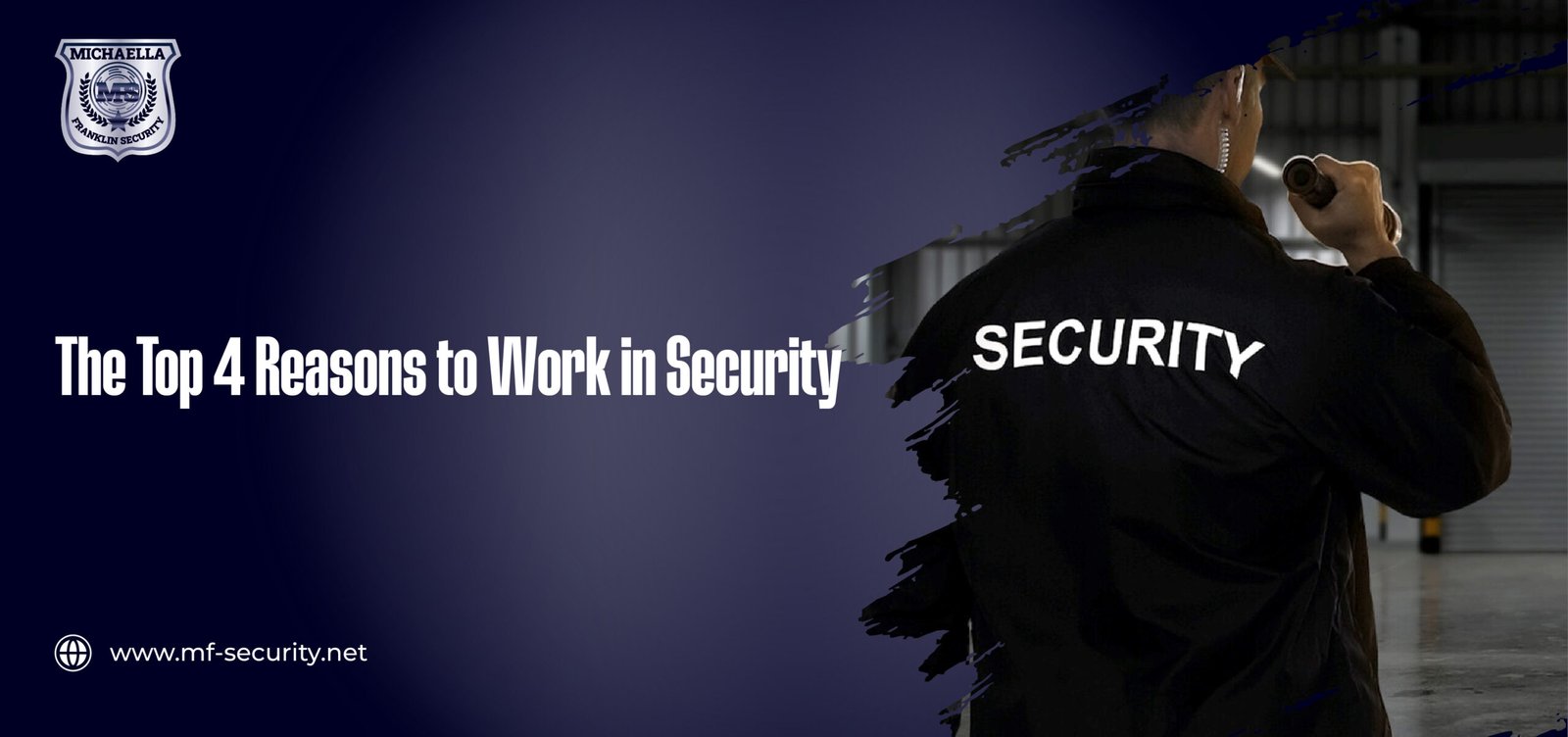Security guards don’t have the same authority as police officers when it comes to making arrests. They can detain someone briefly if they see a crime happening, but this is usually under a citizen’s arrest law, and only for a short time until law enforcement arrives. Their main job is to keep the peace, prevent issues before they happen, and assist police when necessary. It’s always a good idea to understand your rights and the role security guards play to avoid confusion in any situation.
What Are the Primary Roles of Security Guards?
Security guards are hired to maintain safety, prevent criminal activities, and monitor property. Their core duties typically include:
- Monitoring premises through patrols or surveillance systems.
- Preventing crimes like theft, vandalism, and trespassing.
- Enforcing property rules such as ensuring people follow guidelines set by the owner.
- Responding to emergencies and coordinating with law enforcement when necessary.
While security guards have many responsibilities, the power to arrest individuals falls within strict limits.
Can Security Guards Arrest You?
The Legal Authority of Security Guards
In most jurisdictions, security guards do not have the same powers as law enforcement officers. While they can act in detaining individuals or preventing crimes, their authority to arrest is generally restricted.
The authority of security guards can be broken down into the following key points:
- Citizen’s Arrest:
Security guards may have the right to perform a citizen’s arrest under certain circumstances. A citizen’s arrest allows any private citizen, including a security guard, to detain someone who they believe has committed a crime in their presence. This power is limited and does not allow security guards to arrest people without clear justification. - Immediate Detention:
Security officers can detain an individual temporarily while awaiting law enforcement to take over. This is common in cases of theft or vandalism where the individual is caught in the act. Detainment is typically short and should not exceed a reasonable amount of time before the police arrive. - Use of Force:
Security guards are generally permitted to use reasonable force when detaining someone, but excessive use of force can lead to legal repercussions. Their actions should always align with the severity of the threat posed by the individual being detained. - Limited Scope:
Security guards typically operate within the confines of private property. Their authority is usually restricted to the premises they are hired to protect, meaning they can only act within those boundaries.
Need professional security services for your business or event? Explore our VIP protection services and ensure safety today.
What is a Citizen’s Arrest and Can Security Guards Perform One?
A citizen’s arrest refers to the power granted to private citizens (including security guards) to detain someone who is suspected of committing a crime. This can only occur if the crime happens in their presence.
In the context of security guards:
- They may make an arrest if they witness criminal activity such as theft or assault occurring in real-time.
- Guards must follow specific legal procedures and are obligated to call law enforcement as soon as they make the detention.
Key Limitations of Citizen’s Arrest for Security Guards:
- The crime must be observed firsthand by the security guard.
- The arrest should not involve excessive force or violation of rights.
- Guards must notify law enforcement immediately after making the arrest.
Can Private Security Detain You?
While security guards generally cannot make arrests, they are often authorized to detain individuals temporarily. Detainment involves holding someone until law enforcement arrives to handle the situation.
Legal Grounds for Detainment:
- Reasonable suspicion of criminal activity (e.g., theft or trespassing).
- Immediate threat to the safety of others or property.
Security guards are trained to use discretion in these situations, acting swiftly to prevent incidents from escalating while ensuring the individual’s rights are not violated. However, security guards cannot detain someone indefinitely. Detainment must be temporary, and the person must be handed over to law enforcement.
When Can Security Guards Use Force?
Security guards may use reasonable force to prevent harm, make an arrest (via citizen’s arrest), or detain someone. The amount of force used must be proportional to the threat the individual poses.
- Situations where force is used: Security officers may use force if a person is violent, resisting arrest, or trying to harm others.
- Non-violent situations: In most cases, security officers are trained to de-escalate tensions using communication skills rather than force.
Excessive force could lead to legal issues, including charges for false imprisonment or unlawful detainment. Security guards must always ensure their actions comply with the law.
Key Legal Risks for Security Guards Making Arrests or Detainments
Security guards who overstep their authority and make improper arrests or detain someone without cause risk legal consequences. Common risks include:
- False Arrest:
If a security guard detains someone without legal grounds, it can result in a false arrest lawsuit. The individual may be entitled to compensation for damages caused by the unlawful detainment. - Excessive Force:
Using excessive or unnecessary force can lead to criminal charges or a civil lawsuit for assault, especially if the detainee is harmed in the process. - Invasion of Privacy:
Improperly detaining or searching someone may violate their right to privacy, which can result in legal penalties against the security officer and their employer.
Protect what matters most with trained professionals. Learn more about our event security services.
How to Protect Your Rights if Detained by a Security Guard
If you find yourself detained by a security guard, it’s important to understand your rights:
- Stay calm and composed: Avoid escalating the situation.
- Ask for clarification: Politely ask the reason for your detainment.
- Request the presence of law enforcement: You can request that the security guard contact the police if you are being detained.
- Know your rights: You have the right to remain silent and to contact a lawyer if you feel your rights are being violated.
The Role of Security Guards in Crime Prevention
Security guards are trained to prevent incidents before they escalate. Their primary responsibility is crime prevention, not arresting or detaining individuals. By maintaining a visible presence, monitoring activities, and taking quick action when needed, security guards help create a safer environment.
They also play an important role in collaborating with law enforcement to ensure a coordinated response when necessary. Professional VIP protection services Idaho are a prime example of security teams that work in close coordination with law enforcement to protect individuals in high-risk environments.
Conclusion
While security guards may not have the same arrest powers as police officers, they do have an important role in detaining individuals and preventing crime. Their responsibilities include monitoring premises, responding to incidents, and detaining individuals for short periods when necessary. However, it’s crucial to understand the limitations of their authority. Security guards must act within the legal framework to ensure that they do not overstep their boundaries and put themselves or their employer at risk.
If you’re looking for professional security services that can handle situations with legal expertise and precision, Michaella Franklin Security Inc provides top-tier VIP protection services Idaho. Our security officers are trained to manage threats, provide protection, and collaborate effectively with law enforcement when necessary.

